Arts and Culture
Marketing
Theatre
Ticketing and Admissions
Article
Success Stories
76f7be9f-ae09-40a1-bb53-53d04e132412
7 min
https://edge.sitecorecloud.io/tessituraneab9a-tessiturane5642-staging-5396/media/Images/Licensee-Photography/Photos_768x465/ZACH_Curious_768x465.jpg?h=465&iar=0&w=768
Two companies explore alternatives to the traditional subscription model
All-access theatre
12/7/2022
7 min
Picture being able to watch your favorite play over and over again, like your favorite movie or television show.
Audiences at ZACH Theatre and The Phoenix Theatre Company don’t need to imagine it. That option is a benefit of membership in the theatres’ monthly all-access programs.
Promoting the complete experience
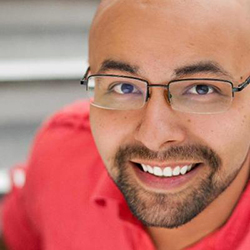
Greg Garcia
Recurring memberships are common — think gym passes or online streaming services. But their use in performing arts organizations is comparatively new. Fixed-seat, season-long subscriptions have long been the norm there. Smaller subscriptions or flex packages are often available. But many still require you to select specific productions and performance dates upfront. Full payment is usually needed in advance or following a few installments.
The ZACH was one of many theatres experiencing a steady decline in subscription revenue. The company in Austin, Texas, produces a 10-show season in three spaces. Its pre-pandemic annual operating budget was $10 million.
“Because it’s called the ZACH Experience, we wanted to encompass all that ZACH offers.”
Over time, staff watched traditional subscription purchases fall in favor of flexible packages.
“Over the course of the last 10 years, we started noticing a significant drop-off,” says Greg Garcia, Associate Director of Marketing and Analytics at ZACH Theatre. “Our plan was to try to tap the brakes on that drop-off, to try to slow it down as much as possible.”
The theatre shifted its priority to retention strategies. Focus groups helped define subscriber motivations and key benefits.
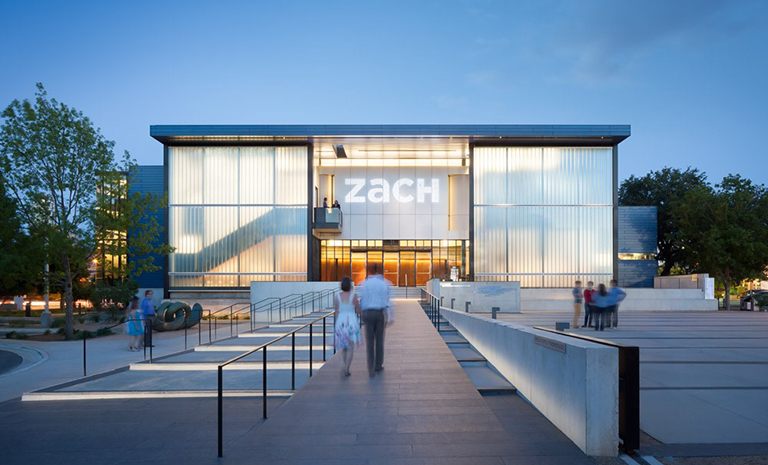
The ZACH Theatre in Austin, Texas.
Then came March 2020. The ZACH lost almost 50% of its existing subscriber base to the pandemic closure.
Staff had pitched a membership model for years as a potential subscription replacement. Patrons often self-identify as members. Repeat buyers may feel as loyal as subscribers.
The reopening reboot created the right conditions for experimentation. The theatre debuted its membership program, the ZACH Experience or ZACH XP, in September 2021.
For a monthly fee of $39, members can reserve one ticket to every ZACH-produced performance. There are no limits per production, and members can choose any available seat. Reservations include parking.
Members can book their seats online in advance or right up to showtime. Exchanges are free when made at least 48 hours before the performance.
ZACH XP members currently make up 20% of the subscription audience.
Other perks include a birthday gift and invitations to exclusive events. Members can cancel any time after the first three months.
“Because it’s called the ZACH Experience, we wanted to encompass all that ZACH offers,” Greg says. “It not only comes with tickets but also with discounts at the merchandise counter, discounts at the bar. Discounts on camps and classes are another benefit.”
ZACH targets patrons who buy more than one show each season, as well as lapsed subscribers. The program appeals to those who like some insider benefits but prefer to spread out their ticket costs.
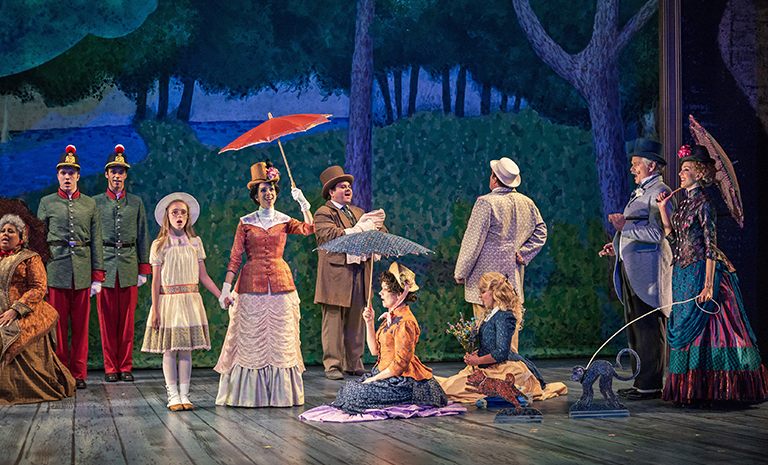
The cast recreates the final tableau of Georges Seurat’s iconic painting in ZACH Theatre’s 2018 production of Sunday in the Park with George. Photo by Kirk R. Tuck.
At the end of the program’s first year, the theatre is seeing positive results. ZACH XP members currently make up 20% of the subscription audience. The majority are new subscriber acquisitions.
The program also benefits ZACH in other ways. Ongoing memberships provide a consistent revenue stream. Unlike narrow subscription campaign windows, memberships can be sold all year. Automatic billing makes the renewal process efficient for staff.
The theatre also has saved money thanks to lower marketing expenses. “Most of our campaigns have been digital throughout the year, so we’re saving costs on print,” Greg says. “And we can use the ZACH brand instead of a particular show or class-specific campaign. It’s been saving a lot because we can use the assets we already have.”
Identifying the right audience
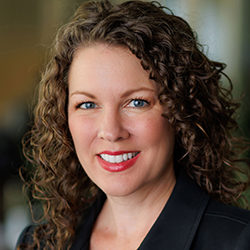
Julia Haase
Roughly 1,000 miles west, The Phoenix Theatre Company in Arizona is exploring a similar strategy. Like ZACH, the theatre performs nearly year-round in three spaces. It has an annual operating budget of approximately $12 million.
Phoenix Theatre Company introduced its All-Access Pass in 2018. It’s also priced at $39 per month. Pass holders can book in advance or buy available seats at the last minute. They receive discounts on tickets purchased for friends, as well as on concessions and merchandise. Exchanges are free. The pass requires an initial commitment of one year, after which buyers can cancel any time.
“After you sign up, you essentially have unlimited theatre,” says Julia Haase, Director of Patron Advancement at Phoenix Theatre Company. “You pay your $39 a month, and you can come as many times as you want.”
“We have been able to very quickly set up great reporting that keeps us on track.”
Identifying the right audience for the program took time. Early promotions targeted to the theatre’s subscribers failed to yield results.
“Initially, it didn’t take off,” Julia says. “We were focusing on what we felt were our most engaged audience members, our seated subscribers. Surely, they were going to want this because they want to engage with us even more. Well, that fell flat. We realized their seats are the most important thing to them. That makes sense.”
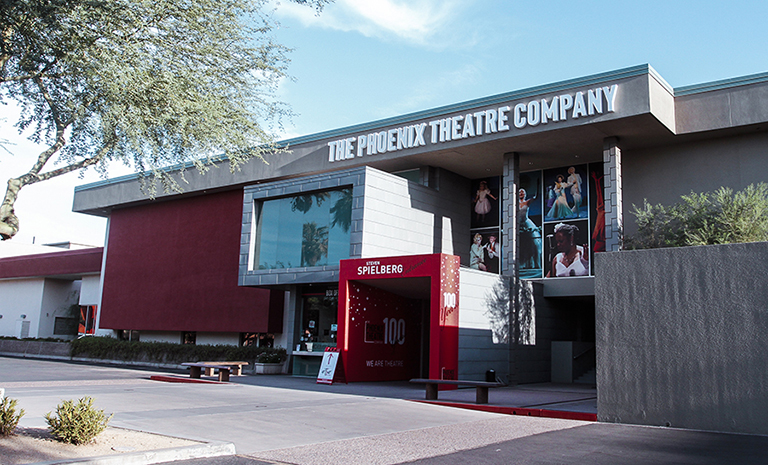
The Phoenix Theatre Company in Arizona.
The theatre pivoted the following year, but then everything shut down in 2020. Some generous pass holders continued payments even with no shows to see. As a result, the theatre began its 2021–22 season with 26 memberships. As the season progressed, that number has increased to more than 400.
Julia admits the team didn’t expect the program to grow so fast. “We weren’t really prepared for what was to come,” she says. “We have been able to very quickly set up great reporting that keeps us on track, so we know nothing is falling through the cracks.”
Automated reports from Tessitura provide details about no-shows, renewal timing and credit card declines. This eliminates the need for a lot of manual intervention. Julia says Tessitura’s flexibility has been valuable to improving the program.
“Tessitura is able to do so much. You just have to ask the right question.”
“Tessitura is able to do so much. You just have to ask the right question,” she says. “Once you ask the right question, you can get the ball rolling and see how it’s going to best work for your organization. So that keeps us nimble and keeps everyone engaged. It keeps us always striving to find a better way to do things. We never want to stay in one spot.”
Greg also credits Tessitura’s adaptability with allowing the ZACH to think big. “Honestly, I don’t think we’d have XP without Tessitura,” he says. “The entire thing is built in the system, with out-of-the-box functionality. We don’t have any customizations running it.”
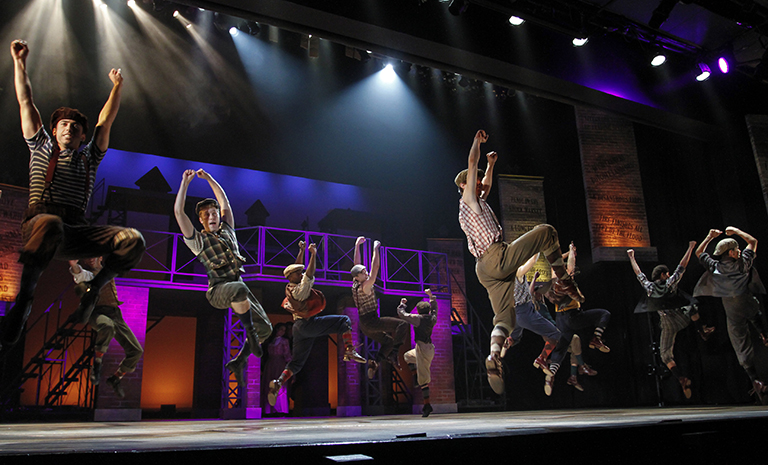
Performers “Seize the Day” in Phoenix Theatre Company’s 2017 production of Newsies. Photo by Reg Madison.
Finding help in community
As they’ve explored their new ticketing models, both theatres have relied on insights and learnings from the Tessitura community.
“We didn’t know there were these other companies doing a similar program with monthly payments,” Julia says. “Now, we’ve been able to connect and, hopefully, we can learn and grow from what it is they’re doing and have an opportunity to do it even better.”
“Tessitura has always been a lifeline for us.”
“One of the greatest things Tessitura has done for organizations on the system is providing the community,” Greg says. “You find out very quickly that some of the trials and tribulations or successes are shared among people going through the same thing you are.
“The community has been so crucial to our success,” he says. “If I’ve ever got a problem, I can jump on the forums. Tessitura has always been a lifeline for us, and I’ve heard the same thing from other organizations as well.”
Top photo from the ZACH Theatre production of The Curious Incident of the Dog in the Night-time by Kirk R. Tuck.
Topics
Arts & Culture
/Marketing
/Theatre
/Ticketing & Admissions

Beyond the buzz
Arts & Culture / BI & Analytics / Business Strategy / Digital / Technology
What I wish someone had told me about digital transformation

Audience behaviors are changing. Are you keeping up?
Arts & Culture / BI & Analytics / Business Strategy / Digital / Technology
Leveraging customer networks in a digital world

Ready, set, summer! Five ways to prepare for the busy visitor season
Arts & Culture / Museums
Tips for museums and attractions to offer a seamless experience